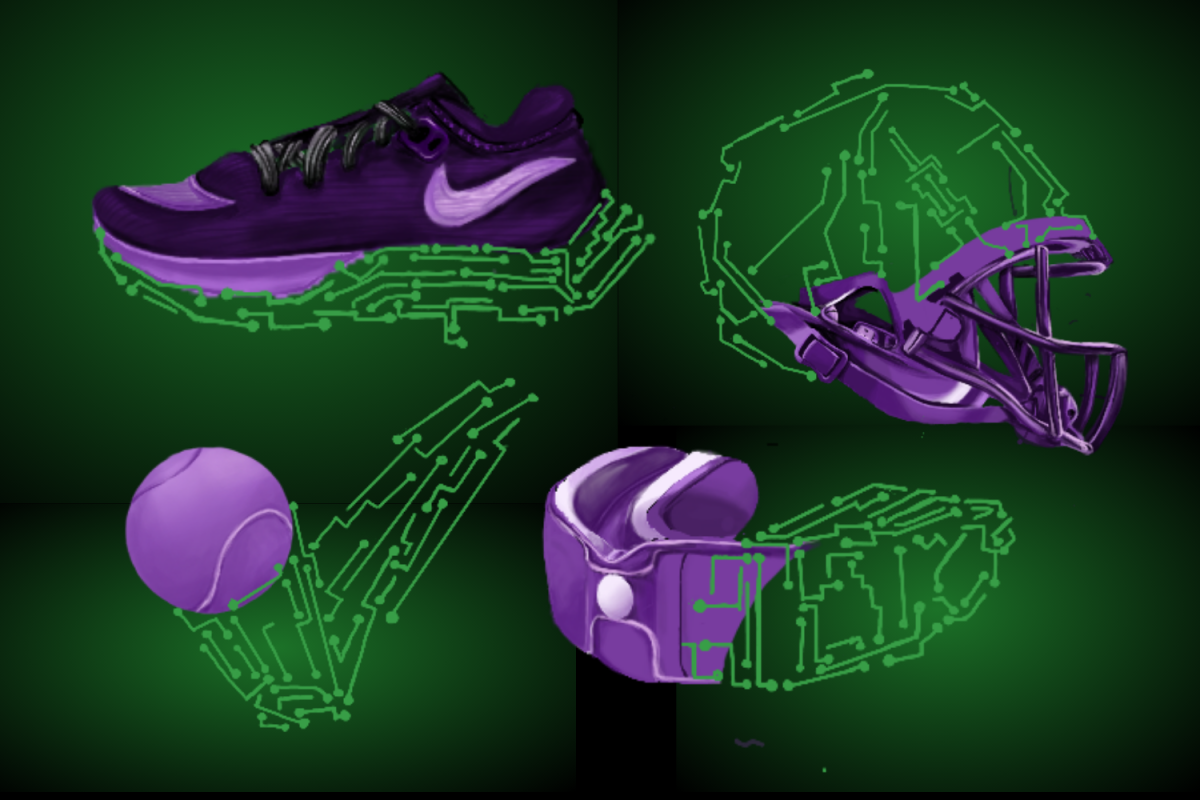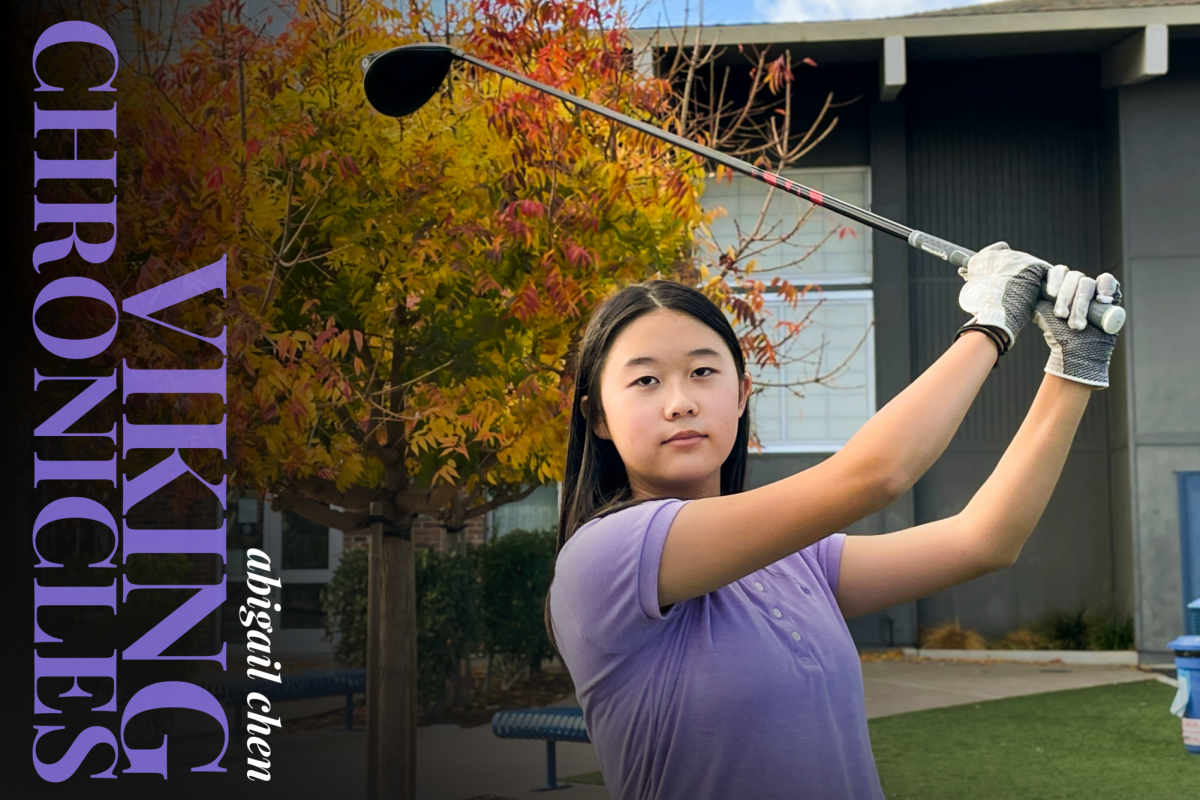- Sports Technology is shaping how athletes train and compete, revolutionizing the way they play sports.
- Sports Technology covers everything from phasing out referees to the improvement of gear.
- Sports Technology also assists referees and promotes a more fair, just decision-making process during games.
In the world of sports, technology has revolutionized how athletes practice and compete. From rapid improvement in gear and apparel to ball-tracking systems, technology is taking center stage in how athletes experience sports.
Advanced running shoes:
Some of the earliest running shoes can be traced back to the mid-1800s, when rubber soles were introduced using the newfound process of vulcanization: using heat to fuse rubber and cloth together. As time went on, new technology continued to be implemented to make shoes lighter and tougher. The Nike Vaporfly, developed in 2017, is regarded as one of the fastest shoes in the world. Vaporfly contains a midsole made of thermoplastic super foam, making it extremely elastic. This superfoam returns more than 85% of energy, which is 25% more than a normal shoe.
“For cross-country we’ll use our racing shoes, and typically they have carbon plates,” junior Annie Peng said. “It feels a lot easier to run at the same pace in comparison to shoes without carbon plates.”
Ball-tracking systems:
By implementing ball-tracking systems introduced in the 2000s, sports have begun phasing out line judges and referees to avoid human error. Ball-tracking systems operate using high-performance cameras that track the ball from various angles. The videos from all the cameras are then collected to give a three-dimensional image of the ball’s trajectory with extreme accuracy.
“In professional leagues, there is a lot of court-tracing equipment,” senior Maggie Lam said. “It helps games run more smoothly.”
This was exemplified in the 2023 U.S. Open when Canadian tennis player Bianca Andreescu challenged a call made by a line judge, requesting electronic intervention. The ball was shown to be inside the line, earning her the point. Ball-tracking systems allow for a fairer game and playing field for everyone.
Shock Absorbing Helmet:
In sports like football, head injuries are all too common, and lead to both physical and mental detriments. To avoid this, researchers have worked to create helmets with better, more advanced shock absorption for the safety of players. Over 40% of all contact players who died under the age of 30 had Chronic Traumatic Encephalopathy, which manifests under repeated high and low impact head injuries. Players with CTE might experience memory loss, aggression or progressive dementia. To combat this issue, scientists at Stanford Camarillo Lab created a virtual model of a helmet with 21 liquid shock absorbers, which was found to dramatically reduce the impact and severity.
Smart Mouthguards:
“Many studies show that athletes should have protective gear,” PE teacher Jennifer Griffin said. “Mouth guards are not limited to football teams and you can actually see some basketball and soccer players with mouthguards as well.”
A mouthguard is one of the most crucial pieces of equipment that protects athletes’ teeth and helps prevent concussions. Currently, many startups are developing smart mouthguards, which can be used to detect various health problems, including teeth grinding, dehydration and concussions. Created by the co-founders of ORB Innovations in 2022, the ORB Smartguard was the first mouthguard that aims to track users’ performance and wellness. The embedded microchip sensor provides accurate acceleration readings upon impact, and an optical sensor and inertial measurement unit help monitor athletes’ heart rate and detect head impacts and the number of steps run. Athletes can also analyze their performance during practices and games through assistive software provided in smart mouthguards.
Video Assistant Referee:
First introduced during the 2018 FIFA World Cup, the video assistant referee aims to eliminate human errors and provide more fair, precise refereeing. With a total of 42 broadcast cameras — eight of which are super slow motion and four of which are ultra slow motion — VAR aims to assist the decision-making process of the referee. Four key on-field incidents that VAR is used to referee are: goals and offenses leading up to a goal; penalty decisions and offenses leading up to a penalty decision; red card decisions and cases of mistaken identity.
Virtual Reality
Virtual reality training is now valuable in sports to improve motor behavior and train specific scenarios under standardized conditions. Using VR to prepare for any possible unexpected outcomes in their upcoming games, athletes can also reduce their risk of getting injured during training. Over the 2016-17 NBA season, the Washington Wizards, a professional basketball team based in Washington, utilized STRIVR, a VR training platform created to accelerate their mental preparation, strategy and play knowledge. According to STRIVR data scientist Joe Willage in a report, Wizards center Ian Mahinmi was able to increase his free throw shooting accuracy from 59.7% in the 2016-17 season to 73.3% on average in the following season while training with STRIVR.



































































